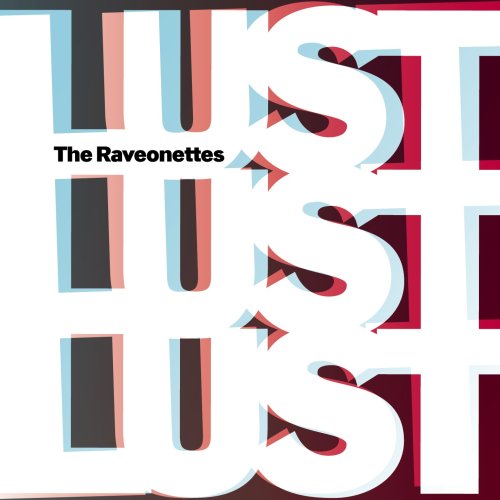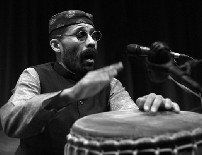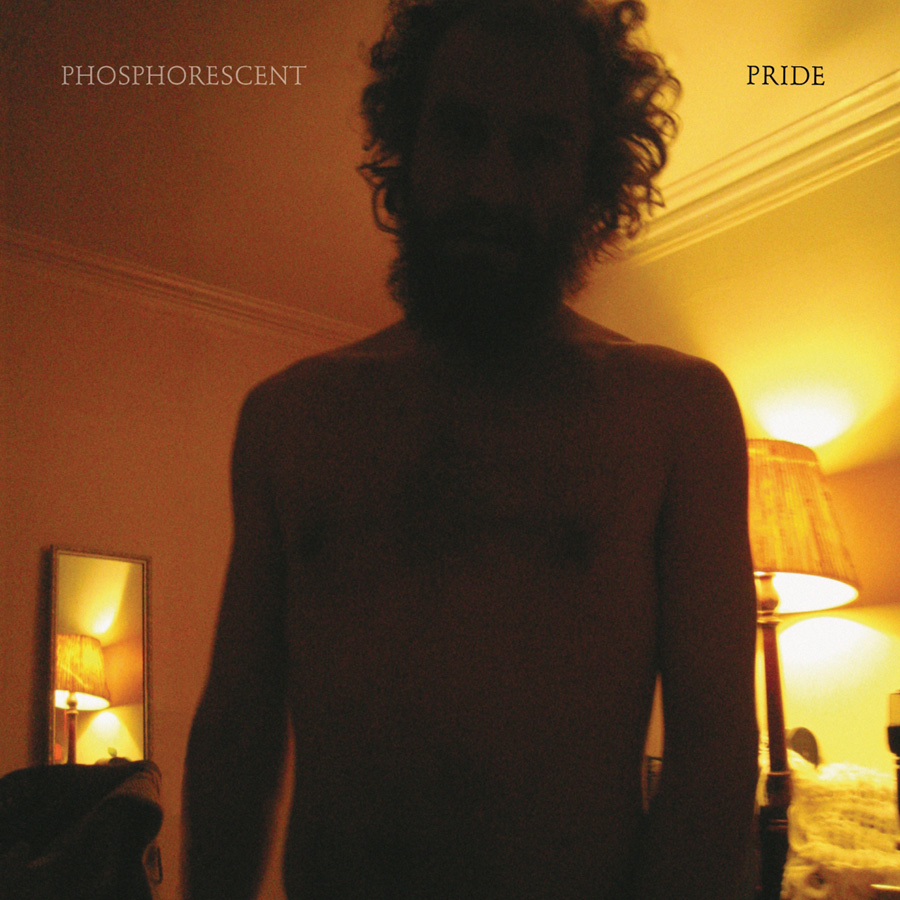
I'm loving this. Nothing more to say now, except Listen to it, already.
More later, including a rundown of last night's edition of Now's the Time, and full program download link.
Lasers in the jungle.

 A version of the Ethnic Heritage Ensemble - founder, vocalist and percussionist extraordinaire Kahil El'Zabar, Ernest Dawkins on saxes (and percussion) and trumpeter (and percussionist) Corey Wilkes - played two sets at Ottawa's Mercury Lounge on Thursday night. The EHE has been a going concern for 35 years now, and though I've only been aware of them for a fraction of that time, I have to assume the group, under El'Zabar's constant direction and leadership, have always been an incredible thing to witness, an unflaggingly engaging and creative act, both live and on record.
A version of the Ethnic Heritage Ensemble - founder, vocalist and percussionist extraordinaire Kahil El'Zabar, Ernest Dawkins on saxes (and percussion) and trumpeter (and percussionist) Corey Wilkes - played two sets at Ottawa's Mercury Lounge on Thursday night. The EHE has been a going concern for 35 years now, and though I've only been aware of them for a fraction of that time, I have to assume the group, under El'Zabar's constant direction and leadership, have always been an incredible thing to witness, an unflaggingly engaging and creative act, both live and on record.
 "... And that's a pretty nice haircut!"
"... And that's a pretty nice haircut!"Though I obsess over them, covet them, collect them and desire them, I recognize recordings of creative music for what they are: moments captured; snapshots of instants in musical time. In the context of free music, they are essentially by-products of the act of creation, at best; in some cases little more than marketing tools, promotional items designed to sustain the music-making lifestyle.
The great schism of American music pre- and post-bebop (or pre- and post-war) has everything to do with the primacy of the individual musician as creator, his/her position lofted above both composer and ensemble. The solo – the act of instantaneous and unique creation – is not a device peculiar to jazz or to
As artists supplanted entertainers – virtuosity trumping palatability, musicians adopting a cool stance, dark glasses, even literally turning their backs on their audiences – dancers became listeners. Music, you see, even lowly jazz, is art. This was the message. Listen careful and you might learn something. Seems natural now, but it was truly novel then.
Is art an act, or a product? Ask anybody from Charlie Parker on, and they’d tell you. Cut the albums, wait for the record company to put them out. By the time anybody hears them, you’re miles gone. New changes, new techniques, new style. Only thing the album’s good for is to get your name out, so that the next time you hit Chicago, LA, New York, Vancouver, Memphis, Seattle, Montreal or Tuscaloosa, the club’s full. The take from that night – a night of creation, of unique and fierce runs, of new depths of expression, of finding new corners within that tune you’ve played a thousand times – keeps you playing, keeps your art alive. I’m willing to bet the model held true for everyone from Dizzy to Lee Morgan to Miles Davis to Albert Ayler to Noah Howard…
And I’d guess it still holds true. Why else are so many forward-thinking artists embracing the online model? Let someone download a file, and maybe they’ll come see you next time you’re booked into their local cultural centre. Ask Dave Douglas. Ask Dennis Gonzalez. I did ask Michael White, and that’s exactly what he told me.
So what is the value of the recording? Why do so many of us devote so much time (and money) to them? What is the source of the undying appeal of the album?
My guess? It is precisely for the above-cited reasons. Recordings of improvised music provide a document of an artist’s development and approach at a specific point in time; they are lightning captured, time frozen, or as the title suggests, the Moment, suspended. This is why the chronology of recordings is so important. Consider John Coltrane’s 1965 output. There is no mistaking The John Coltrane Quartet Plays… (recorded in February) with Ascension (late June) or Kulu Se Mama (October). This accounts, too, for the importance in jazz studies, perhaps more than in any other musical discipline, of the hyper-detailed sessionography.
Or consider the Benedetti recordings. These documents provide a unique opportunity to study the rapid development of an artist over a condensed period, and I’d venture their peculiar genesis and the mystery that surrounded them until their CD release represent a set of circumstances that could only arise from the world of jazz/improvised music. Bird’s solos were mini-compositions, worlds of sound unto themselves. Like a photograph, Benedetti’s tapes refuse to betray their precise context. Like Cartier-Bresson’s famous image, we don’t have backstory, we can’t see what lies outside the frame, but we are nevertheless arrested by their fleeting arrangement, the very perfection of their brevity, their self-contained nature.
The moment comes, and then it goes. If you’re lucky, you’re there. You’re in the club or hall, and you’re close enough to recognize the flash of invention, the moment when a musician takes off and recombines a series of familiar ingredients into something incredible and new. The Moment. “Koko,” or “Chasin’ the Trane.” A moment when even the creators astonish themselves with the nature of the creation. But if you’re not lucky enough to be there, maybe a recording engineer is. And then there is evidence of that moment, a tangible artifact. A thing to hold and help with the archaeological recreation of an artist’s path, a document of a different take on an old tune, or an impassioned invention from scratch, or a 27 chorus, legend-birthing solo. The artists live these moments, and then move on, and many times can’t understand what the fuss is about. But we fans, we collectors, are equal parts music-lovers and historians, parsing the evidence, reliving the moments. Longing to re-experience that high-wire act of spontaneous creation over and over and over again.

 Next, I've had a week now to live with Jukebox, Cat Power's latest, a sort of a thematic follow-up to The Covers Record, and a sonic sibling of her last, The Greatest. Flak will be dished because Jukebox's covers don't reinvent the originals the way The Covers Record did, and Cat, a.k.a. Chan Marshall seems to be getting comfortable in the skin of a palatable chanteuse, a skin she first donned on The Greatest. But here's the rub: it works. Call sellout if you must, but I'm at a point (age?) where I see it as a trade-off: we're losing a volatile and unpredictable artist, a cauldron of nervous energy and stylistic tics; but we're gaining a helluva soul singer. Maybe artists don't have to reinvent the wheel with every release. Maybe it's enough to cut a good set of songs.
Next, I've had a week now to live with Jukebox, Cat Power's latest, a sort of a thematic follow-up to The Covers Record, and a sonic sibling of her last, The Greatest. Flak will be dished because Jukebox's covers don't reinvent the originals the way The Covers Record did, and Cat, a.k.a. Chan Marshall seems to be getting comfortable in the skin of a palatable chanteuse, a skin she first donned on The Greatest. But here's the rub: it works. Call sellout if you must, but I'm at a point (age?) where I see it as a trade-off: we're losing a volatile and unpredictable artist, a cauldron of nervous energy and stylistic tics; but we're gaining a helluva soul singer. Maybe artists don't have to reinvent the wheel with every release. Maybe it's enough to cut a good set of songs.